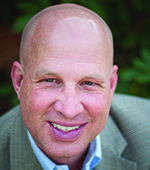 By John Chandler
By John Chandler
If you’ve ever heard a motivational speaker — or, heck, had a coach — you’ve been told that we only employ a tiny fraction of our vast mental capacity, and that we can tap into so much more. You are a great big bundle of potential, the story goes, and it is possible for you to become the best possible version of yourself.
Ask a neuroscientist about the emerging possibilities around better brains and you will hear about the rapidly unfolding ways we are already doing this. Ask an ethicist about this, and you will hear that the moral questions around these practices are about to get far more complex. If years ago, Prozac promised to make us “better than well,” can brain enhancement today make us “better than smart?” And if so, should it?
There is still no mythical “smart pill” that automatically boosts your IQ. But already we have pharmacological mechanisms to boost strengths and eliminate weaknesses. Ritalin was developed to treat ADHD. But some trials have found it to boost memory, concentration and motivation in those without ADHD. Already scientists are targeting specific components of intellectual output and aiming toward customizing pills to bolster particular strengths. Would you take a memory pill before a big exam? If you did and got an “A” on it, did you really earn it? Will the valedictorian have the best drugs?
The most interesting thing already on this market is a device called Thync, which uses jolts of electrical current to stimulate and modulate brain activity. Of course, this idea has long been applied via electroshock therapy to treat illness. But now, Thync functions to calm people down or to give a boost of energy. Jamie Tyler, the Arizona State neuroscientist and co-founder of the company, says that it is “akin to a cup of coffee during a late-night cram session or a few minutes of meditation before a big presentation.” In short, “It’s just another tool to be able to navigate your daily life.”
Maybe.
What strikes me is that people who think theologically and live spiritually have wonderful opportunities to weigh in helpfully on this. Our biblical heritage gives us a useful repository of questions through which we can examine marketing and medical claims with different lenses. What does it mean to treat your body as a temple of the Holy Spirit? Why live with sobriety rather than in an altered state? Are we more than our brains? If faith is the ultimate human response to mortality, where does striving to be our best end and denying finitude with hubris begin?
There’s a lot of potential in those conversations.
